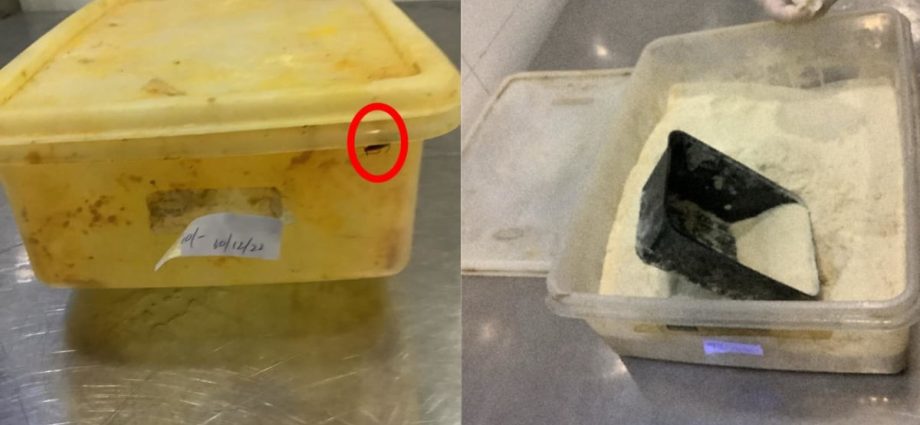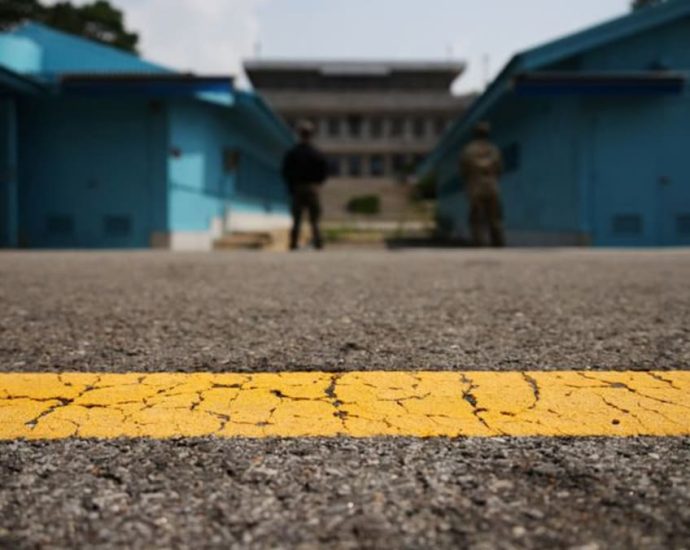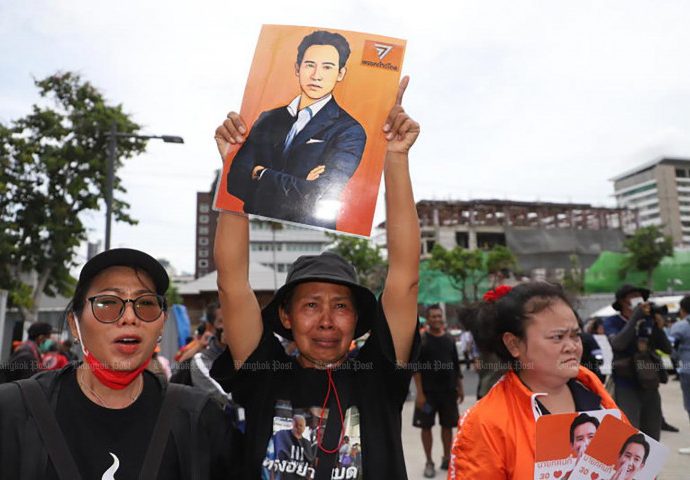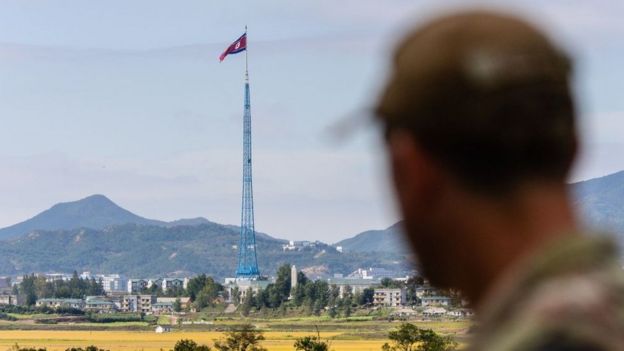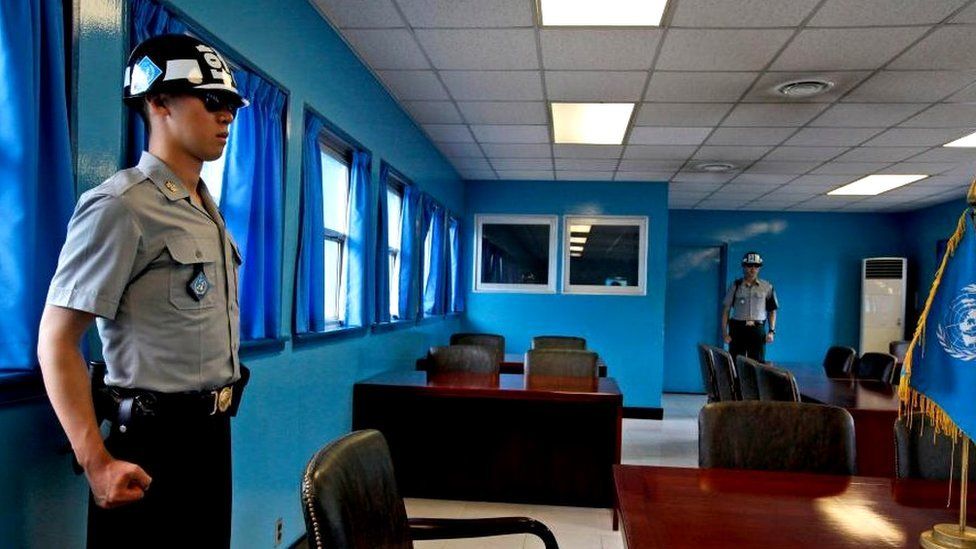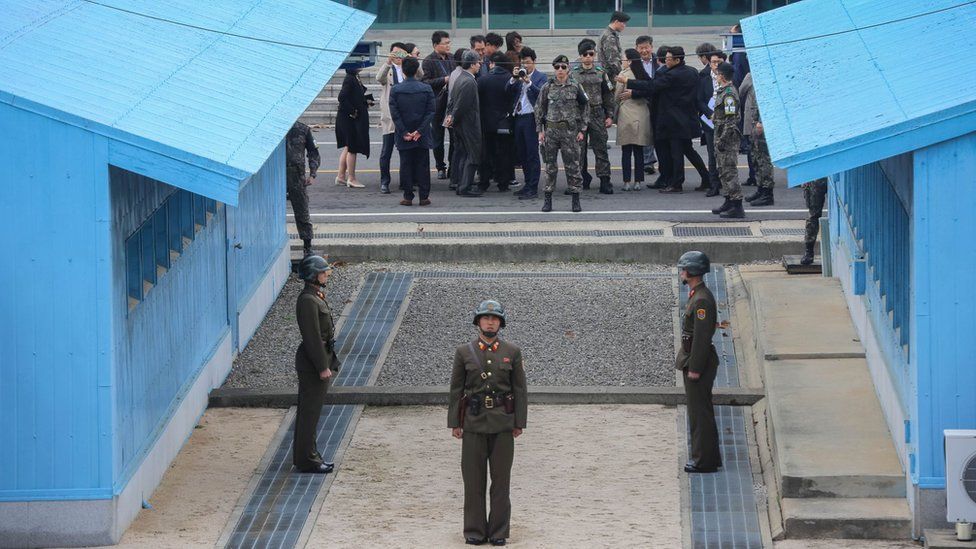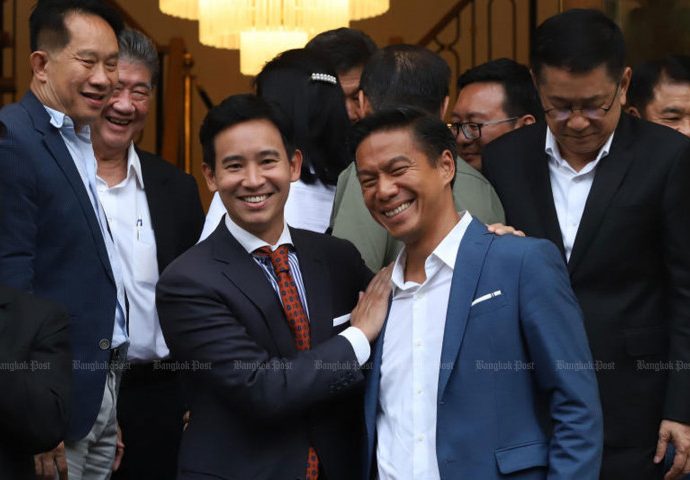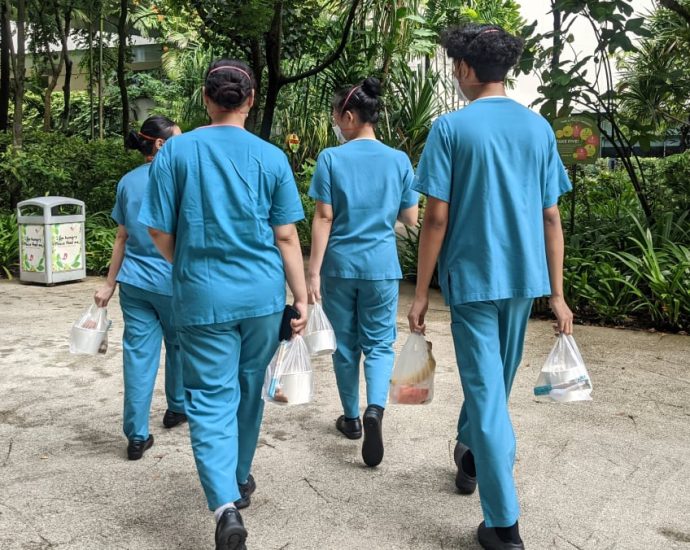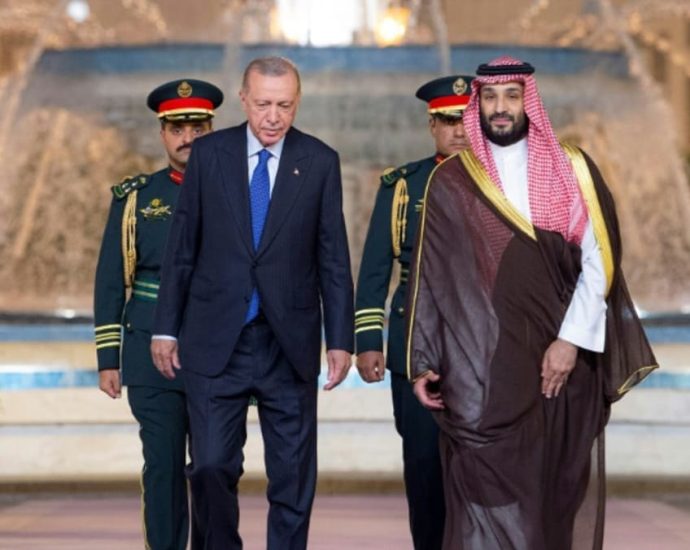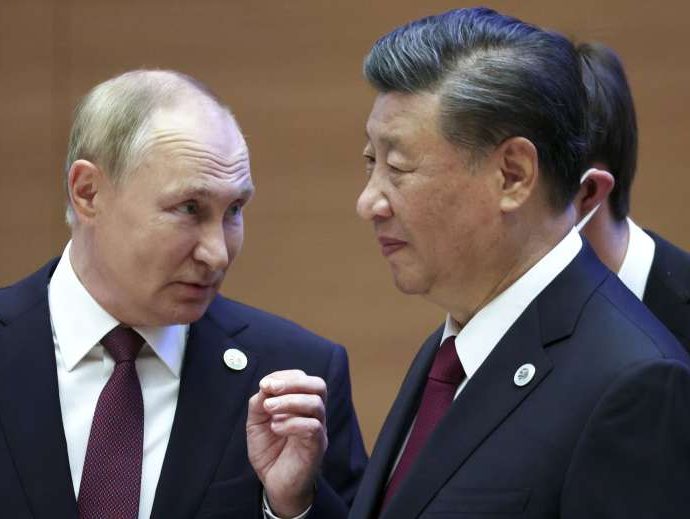Rasel Catering fined S$4,800 for multiple hygiene lapses, leading to 345 cases of food poisoning
After the suspension was lifted in December last year, MOH and SFA said: “The company has disposed all ready-to-eat food, thawed food and perishable food items, and cleaned and sanitised their premises, including equipment and utensils, and disinfected food preparation surfaces, tables and floors.” Rasel Catering’s food handlers and food hygieneContinue Reading
US soldier got in fights, damaged police car before dash to North Korea: Court docs
Two US officials, who spoke on condition of anonymity, said the soldier had been due to face disciplinary action by the US military. Reuters was not immediately able to ascertain whether the disciplinary action was linked to his conviction over damaging the police vehicle. The Seoul court said on SepContinue Reading
Parliament rejects Pita’s renomination for PM
PUBLISHED : 19 Jul 2023 at 17:28

The joint House and Senate sitting voted to reject the renomination of Move Forward Party leader Pita Limjaroenrat for prime minister because a parliamentary regulation bans it, Parliament President Wan Muhamad Noor Matha said.
Mr Wan made the announcement after 715 parliamentarians voted electronically about 5.10pm on Wednesday. The parliament president called the vote after a lengthy debate on the issue, which started shortly after the meeting opened at 9.30am.
In the joint sitting, 395 parliamentarians voted against Mr Pita’s renomination, 312 voted to support it, eight abstained and one did not exercise the right to vote.
Mr Wan said the rejection was by majority vote, because half the votes in the joint sitting was 374. The number was adjusted after Mr Pita was suspended from duty as an MP by the Constitutional Court earlier in the day.
Before the vote, parliamentarians spent hours disputing whether the renomination was allowed or not.
Opponents said parliamentary session regulation No.49 prohibited the resubmission of a failed motion to the parliament during the same parliamentary session. They said Mr Pita’s nomination had been rejected last week and there was no new development that could justify its resubmission.
Pro-Pita parliamentarians emphasised that the regulation applied to general motions and not to the prime ministerial nomination. They said that it was a nomination, not a motion. They also said that parliamentarians should respect the choice made by the voters at the May 14 general election.
Mr Pita’s Move Forward Party won the election with 151 House seats. Recently he said he would make way for the Pheu Thai Party to nominate a prime minister if his bid failed.
Pheu Thai won 141 House seats and the two parties are the key members of the eight-party coalition.
Mr Pita warned on Tuesday that a vote to block his renomination would set a risky precedent for parliamant. Now, whoever is nominated for prime minister will have to be assured of majority support because he or she will not get a second try.
Travis King: US soldier in N Korea was jailed for fights in Seoul
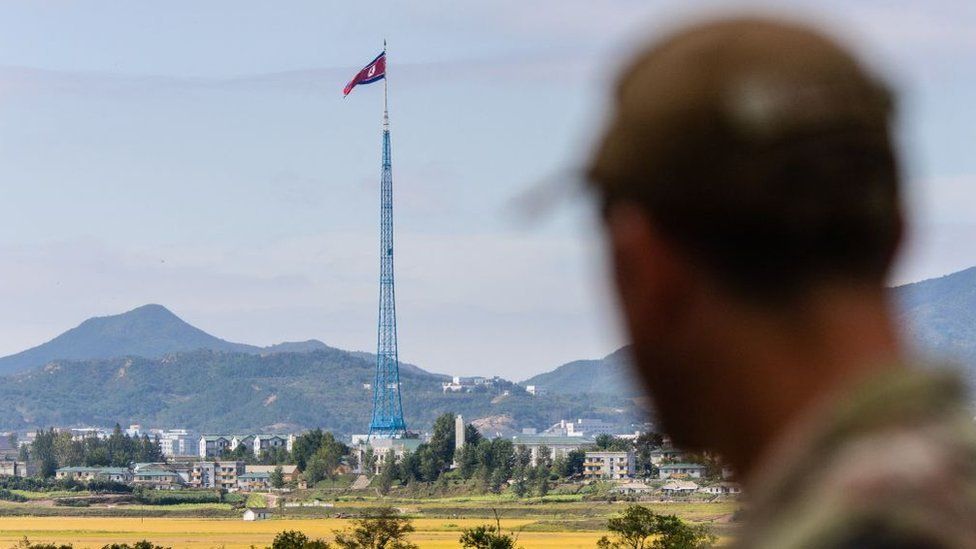 Getty Images
Getty ImagesTravis King, the American soldier who fled to North Korea, had been jailed for assault in South Korea prior to crossing the border.
Court documents showed he had been embroiled in fights and hit a police car in Seoul.
The 23-year-old serviceman had been recently released and was being sent back to the US when he escaped.
He joined a tour of the Joint Security Area and fled into North Korea. Pyongyang has not commented so far.
It remains unclear what his intentions were for crossing the border. US authorities have said that he did so “wilfully, of his own volition” and has expressed concern about his well-being.
Private 2nd Class (PV2) King was reportedly investigated for assault in South Korea in September 2022. According to local media, King was suspected of punching a Korean national in a nightclub in Seoul.
He was fined 5m won (£,3,000; $3,950) for “repeatedly kicking” the back door of a police car and screamed “foul language” at the officers trying to apprehend him.
Local reports quoting officials said he was released on 10 July after serving two months in jail on assault charges, but did not elaborate further.
After his release, he was placed under military observation for about a week in South Korea.
He was escorted to the airport in Incheon, near Seoul, for a flight back to the United States, where he was to face disciplinary action.
But he did not board the plane. The Korea Times, quoting an airport official, said he arrived at the boarding gate alone as military police officers were not allowed to accompany him all the way to the plane.
At the gate, he reportedly approached an American Airlines official and claimed his passport had gone missing. An airline employee then escorted him out of the departures area.
After parting ways with his escort, he is reported to have left the terminal to embark on a tour of the Demilitarised Zone, or DMZ, between North and South Korea, where foreigners can visit via tour companies.
It is not clear how King managed to get on one of these tours, as it usually takes three days for an individual to be authorised on one of these trips, which are usually closely monitored.
An eyewitness on the same border tour described hearing the soldier laughing loudly before making a run across the border.
The United Nations Command, which operates the DMZ, said it believed the soldier was now in custody of the North. A senior US commander said there had been no contact with the soldier and the incident was being investigated by US Forces Korea.
King’s mother Claudine Gates told ABC News she could not imagine her son doing such a thing. He “had to be out of his mind”, she said.
This video can not be played
To play this video you need to enable JavaScript in your browser.
Related Topics
-
-
12 hours ago
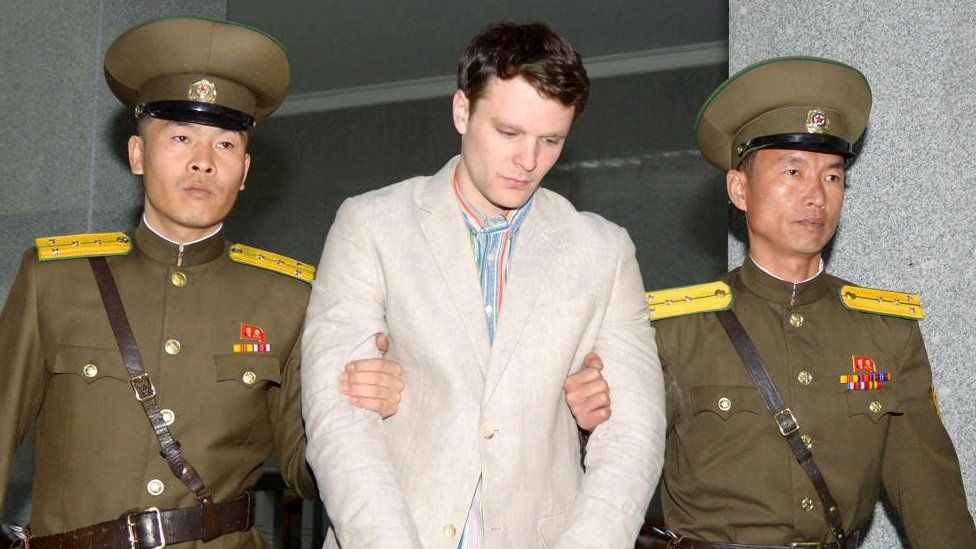
-
Fair Party exhorts Pita not to give up
PUBLISHED : 19 Jul 2023 at 16:57

Kannavee Suebsang, the Fair Party’s secretary-general and only MP, exhorted Move Forward Party leader Pita Limjaroenrat not to give up and to eventually return to parliament with grace.
Mr Kannavee on Wednesday posted his message on his Facebook page, giving his moral support to the MFP leader after the Constitutional Court suspended Mr Pita from duty as an elected member of the House of Representatives.
“Elegance in Thai politics is the act of respecting the public’s vote and adhering to the law under true democracy.
“Don’t give in to obstacles that prevent the nation from freeing itself of the shackles that have held up the country’s democracy,
“Don’t stop because rules and regulations have been created to favour authoritarianism and that put a halt to the development of the country, which is truly owned by the people.
“I offer encouragement to Pita Limjaroenrat. Suspension from duty is just temporary, then come back gracefully. People still want a true democracy,’’ said Mr Kannavee, whose party is one of the eight coalition allies led by the MFP.
His message was posted after the charter court temporaily suspended the MFP leader, party-list MP and candidate for prime minister from his duties as an MP.
The Constitutional Court accepted a petition from the Election Commission (EC) seeking a judicial ruling on the MFP leader’s eligibility for political office over his former shareholding in defunct media company iTV Plc.
The suspension order was issued as the elected House and the appointed Senate were sitting in joint session on Wednesday to elect the country’s 30th prime minister. It was the second round of voting after Mr Pita, whose party won the most seats in the May 14 general election, 151, failed to secure the required majority last Thursday.
The 42-year-old MFP leader was re-nominated on Wednesday amid opposition from the military-appointed senators and MPs outside the eight-party alliance.

A man holds a paper poster with a message “Senators, do not vote against the people’s consensus”. He and other supporters of the Move Forward Party gathered at the main gate of parliament on Wednesday following the Constitutional Court’s ruling suspending MFP leader and prime ministerial candidate Pita Limjaroenrat from duty as an MP. (Photo: Pattarapong Chatpattarasill)
Fresh Singapore nursing graduates eligible for S$15,000 sign-on bonus
MOH added that the S$15,000 bonus will also extend to fresh graduate nurses who were working part-time in the public healthcare clusters or publicly-funded residential community care organisations, before converting to full-timers in the same institution in 2023. Male graduates from ITE’s December 2020 graduation cohort and the polytechnics’ MarchContinue Reading
Türkiye’s Erdogan ends Gulf tour with Abu Dhabi visit
ABU DHABI: President Tayyip Erdogan visited the United Arab Emirates on Wednesday (Jul 19) as he toured wealthy Gulf Arab nations for investment and funds, hoping to revive Turkey’s economy which has struggled with a weakened lira, heavy deficits and chronic inflation. Abu Dhabi is Erdogan’s last stop in aContinue Reading
Inspection at chicken pie shop ‘conducted appropriately’, says MOM after accusations of aggressive behaviour

SINGAPORE: The Ministry of Manpower (MOM) said on Wednesday (Jul 19) that its inspection at Chicken Pie Kitchen and Don Signature Crab in Jalan Besar earlier this week was “conducted appropriately”, citing footage recorded on a body-worn camera.
MOM’s statement comes after the shop posted on Facebook about an incident on Monday evening, alleging that people claiming to be from the ministry “barged into” the shop and insisted on seeing employees’ personal identification cards.
According to the post, the MOM officers went into different areas of the restaurant’s premises, including the cashier area “without permission”. It added that the officers also entered the pastry room and kitchen where food was being prepared, without wearing masks or spit guards required for food handlers working in such settings.
In a statement issued on Wednesday, MOM said its officers were wearing MOM warrant cards, and had identified themselves and explained the purpose of the inspection to staff.
“They had politely requested for identification from the company’s staff as part of the inspection,” said an MOM spokesperson. “Our officers were respectful and calm throughout the inspection.
“They were mindful to minimise disruptions to the company’s operations and not affect the two diners who were present during the inspection.”
The ministry said two foreigners found working in the restaurant might have committed an offence under the Employment of Foreign Manpower Act. They were asked to stop work immediately.
MOM has since began investigations into the company for potential employment-related offences.
Mr Kelvin Leong, director of the restaurant, told CNA on Wednesday afternoon that he has not been told what the breach might be, only that investigations were ongoing.
He said that after looking through the Employment of Foreign Manpower Act, he has not been able to identify what offence his workers may have committed.
Although he was not at the shop during the inspection, he watched the incident play out over the closed-circuit television system.
He added that the staff were unsure if the people who entered the shop were really MOM officers and were afraid that they were scammers who wanted to steal personal data, since they took photos of the employees’ identification cards.
One staff member told CNA that she thought it was a routine check, but things changed when they asked about the identities of the MOM officers.
“The mood changed, they became very aggressive,” said the staff member who declined to be named.
Mr Leong, who questioned the timing of the inspection, said he spoke to friends in the food and beverage industry who found the inspection “highly unusual”.
“Normally they do it during office hours, so that if there are any queries or anything, there can be correspondence back with somebody (in MOM),” he said.
But the officers only provided the information to staff after 5.30pm, after office hours.
MOM said: “If any company or member of public is in doubt of the identity of an MOM officer, they may verify the identity of the individual through our hotline at 6438 5122 from 8.30 am to 5.30 pm on Mondays to Fridays and 8.30am to 1.00 pm on Saturdays.”
The ministry said its officers provided the contact number of a supervisor to one of the company’s directors.
“The director spoke to the MOM supervisor and was assured by our officer that these were indeed MOM officers, and he did not raise further objections after the exchange.”
But Mr Leong said on Facebook that he was unable to verify online whether the number provided to him was legitimate.
Chinaâs foreign policy counter to US-led containment
At last week’s NATO summit, the members issued a final statement criticizing China’s coercive policies, which they said challenge the interests, security and values of the bloc.
The NATO members did, however, commit to “constructive engagement” with the rapidly rising superpower.
Beijing reacted strongly to the statement nonetheless. It accused the alliance of “smearing and lying” about China and warned against NATO’s outreach efforts in the Asia-Pacific.
Foreign Ministry spokesperson Wang Wenbin said in blunt terms:
NATO must abandon the outdated Cold War mentality and zero-sum mindset, renounce its blind faith in military might and misguided practice of seeking absolute security, halt the dangerous attempt to destabilize Europe and the Asia-Pacific and stop finding pretext for its continuous expansion.
How the US is challenging China
China’s strong reaction reflects its serious concerns over the global challenges it faces. These include:
- the growing networks of US-led alliances and security partnerships, such as the Quad and AUKUS, which aim to constrain if not contain China
- US and European Union policies of de-risking and diversifying their supply chains to reduce their reliance on China
- and more restrictive export control regulations the US has enacted on high-tech transfers or exchanges. These are meant to prevent China from gaining the ability to manufacture semiconductors and slow its progress in quantum computing and artificial intelligence.
Even as it becomes more concerned over these challenges, Beijing is hopeful these US-led networks of alliances and partnerships will remain patchwork given their diversity of interests, priorities and commitments.
China also retains significant advantages given its close economic ties with America’s allies and partners. This will influence whether the US can successfully achieve what Beijing believes is its goal of containing China.
China’s strategy in response
Analysts have questioned whether Beijing is smart and patient enough to be able to apply a wedge strategy to divide the US and its allies, or if its misjudgment and hubris could cause it to become overconfident and even arrogant.
Indeed, Beijing’s wolf-warrior diplomacy and assertive policies in recent years have only served to help the US and its allies grow closer to counter these actions.
Beijing may have learned its lessons. It’s now adopting a more proactive and confident diplomacy to counter US encirclement. I’ve observed at least four tactics when it comes to this shifting foreign policy.
1) China is focusing on the region and leaning into its strengths
Beijing recognises it must focus its diplomatic energies on Asia given its importance to China’s security and economic interests.
It is deepening its economic ties with ASEAN, the 10-nation regional bloc, while also supporting ASEAN centrality in the region’s security structures. The Southeast Asian group is wary of being drawn into a US-China conflict and forced to choose sides. It is also concerned US-led initiatives such as the Quad could diminish its role in the region.
At the same time, China has been active in promoting the ASEAN-sponsored Regional Comprehensive Economic Partnership. It believes this group offers a more inclusive and cooperative approach to regional economic cooperation. The group includes the ASEAN members, China and several US allies, such as South Korea, Japan and Australia.
Beijing is billing it as an attractive alternative to the US-sponsored Indo-Pacific Economic Framework for Prosperity. This group, which includes 14 countries in the region, last month signed an agreement on making their supply chains more resilient.

2) Beijing is boosting its diplomatic efforts with Europe
Since lifting its Covid border restrictions, Beijing has welcomed world leaders, hosted business groups and promoted trade and investment opportunities in China.
Europe, in particular, has been the focus of Beijing’s recent diplomacy. Premier Li Qiang’s first major international trip since taking office was to Germany and France last month, where he emphasized economic opportunities over geopolitical differences, partnership over rivalry.
European leaders such as French President Emmanuel Macron, Spanish Prime Minister Pedro Sánchez and German Chancellor Olaf Scholz have also become regular features in Beijing.
These efforts are allowing China to deepen its economic ties with Europe. In so doing, Beijing is hoping to undermine US efforts to develop a transatlantic approach toward China, including policies of de-risking or de-coupling their economies from China.
3) China is standing with Russia – for now
Beijing is likely annoyed, if not dismayed, by the fiasco Russia’s war in Ukraine has become. However, it is determined now is not the time to desert Russian President Vladimir Putin.
From energy supplies to military technology cooperation, Russia remains a vital strategic partner for China. The last thing China wants is a decimated Russia, leaving it to face the US and its networks of alliances and security groups alone. China also would not want to deal with any potential threats from Russia, given their long shared border.
Beijing has carefully, if not convincingly, presented itself as a neutral bystander in the conflict, interested in bringing it to an end. China is also taking advantage of Russia’s precarious position by expanding and consolidating its influence in Central Asia, while remaining respectful of Russia’s traditional ties to the region.

4) China is promoting itself as a global leader
Finally, China has become more confident and active in promoting its models of global governance in security, development and community building.
Some efforts are still in the development stages, such as its Global Security Initiative, while others are more concrete. For example, Beijing sees itself as a global mediator after its success in brokering a truce between Saudi Arabia and Iran in March.
Beijing is also continuing to promote its preferred multilateral institutions, from the Shanghai Cooperation Organisation to the BRICS group, which currently includes China, Brazil, Russia, South Africa and India. Beijing has welcomed expanding the group.
Together with its ambitious and controversial Belt and Road Initiative, Beijing believes it can offer an alternative to the US-led groupings such as the Quad. By relying on institutions in this way, Beijing can promote its interests globally while avoiding direct confrontation with the US.
Jingdong Yuan is Associate Professor, Asia-Pacific security, University of Sydney
This article is republished from The Conversation under a Creative Commons license. Read the original article.
Japan visitors top 2 million in June for first time since pandemic
Kyubey in April halted a lunch sale it had offered for years as rising costs for sea urchin, abalone and other shellfish made the price untenable. But discounts aren’t needed now for Kyubey’s customers, who come mainly from Europe, the United States and elsewhere in Asia. It is sometimes completelyContinue Reading

